
Senior Advisor for International Metrology.
Sartorius Lab Instruments GmbH & Co. KG
CECIP (Comité Européen des Constructeurs d’Instruments de Pessage) is the European association for manufacturers of weighing instruments, founded in 1958. Although it is possible since 2014 under special restrictions its members are no companies themselves. CECIP represents the national European associations of weighing industry. Actually those are 14 from Austria, Czech Republic, France, Germany, Hungary, Italy, Netherlands, Poland, Romania, Russia, Slovak Republic, Spain, Switzerland and United Kingdom.
Today CECIP is playing its role within Europe, striving for common and harmonised standards to be adopted at European and International levels to provide safety and quality to both consumers and users of weighing instruments. In order to provide valuable arguments to influence the relevant regulatory environment and market conditions, CECIP has two working groups composed of industry representatives from CECIP member associations.
Keywords: Legal metrology, weighing instruments, NAWI, MID, notified bodies
1.General
CECIP (Comité Européen des Constructeurs d’Instruments de Pessage) is the European association for manufacturers of weighing instruments, founded in 1958. Although it is possible since 2014 under special restrictions its members are no companies themselves. CECIP represents the national European associations of weighing industry. Actually those are 14 from Austria, Czech Republic, France, Germany, Hungary, Italy, Netherlands, Poland, Romania, Russia, Slovak Republic, Spain, Switzerland and United Kingdom.
Today CECIP is playing its role within Europe, striving for common and harmonised standards to be adopted at European and International levels to provide safety and quality to both consumers and users of weighing instruments. In order to provide valuable arguments to influence the relevant regulatory environment and market conditions, CECIP has two working groups composed of industry representatives from CECIP member associations.
The LegalMetrology Working Group (LMG) deals with the analysis of the relevant regulatory framework and represents the industrial position within this legislative process. Furthermore, the LMG participates in the work of international organisations, such as OIML (International Organization for Legal Metrology) and WELMEC (European Cooperation in Legal Metrology) but as well in non-legal metrology organisations like EURAMET (European Association of National Metrology Institutes) for calibration guidelines.
The Business and Trade Working Group (BTG) focuses on securing fair competition within the EU internal market, ensuring a proper and uniform control of instruments by the relevant authorities.
Except of the Secretary General all active persons work on a voluntary basis. Their expenses are paid from the companies they belong to.
The Secretariat of CECIP is located in Brussels.
CECIP Cooperation with International Industry Federations: Metrology – especially Legal Metrology- is increasingly becoming an international issue with greater and greater influence on both national and European requirements. International trade and globalization require harmonization in regulations and rules on a wide international basis. CECIP has consequently started cooperation with other industry federations in the world. These Federations may be from the weighing industry outside Europe or other measuring instruments’ federations in Europe. The aim is to inform each other, to harmonize views, represent each other on international committees like OIML (International Organization of Legal Metrology) and WELMEC (European Cooperation in Legal Metrology) or in discussions with the European Commission.
Official co-operation exists with:
- Japanese Measuring Instruments Federation
http://www.keikoren.or.jp/eng/ - European Federation of Petroleum Measuring and Distribution Equipment/p>
http://www.cecod.eu/ - European Association of Manufacturers of Gas Meters, Gas Pressure Regulators and Associated Safety Devices and Stations
http://www.farecogaz.eu/
2. About Legal Metrology Group (LMG) and its activities
LMG consists of 23 metrology experts from 9 countries including the President of LMG and the CECIP Secretary General. The participation is open to everyone from the national federations in case he wants to support LMG work actively and is proposed by his national federation.
LMG represents and is responsible for all metrological aspects which are of interest for its members, except Market Surveillance (BTG issue). During the work of more than 20 years the group got international reputation via knowledge and qualification of its experts and seems to be one of the most active industry representations in metrology in the world.
CECIP is no legal authority and therefore has no official voting rights in committees and working groups of intergovernmental treaty organisations like OIML and WELMEC. Our role is guidance, information clarification and discussion. Who knows better than industry itself about new technologies in discussion or what is possible to be realised in a company and what the necessities for users of measuring instruments are. Laws and regulations have to consider all aspects. In the past LMG has given important input and has influenced Legal Metrology in several items.
CECIP LMG is involved
- in more than 50 international working groups (from e.g. OIML, WELMEC, EURAMET, European Commission) respectively in projects of those (like e.g. OIML Recommendations, Documents, WELMEC Guides and European Directives) which are of interest for our members
- in discussions/clarifications about actual questions in LM (e.g. under which circumstances a change of an instrument which already is in the market creates a new instrument or is a repair; the use of old certificates when EN45501 comes into force; the definition of “manufacturer” and use of certificates of other companies and much more)
From these topics actually are active roughly about 30 but each day others can become active or finished as well. Nevertheless working carefully on so many items it is a huge amount of work. Nobody is able to follow all items in detail.
LMG took this into account in the organization of the group and
- identified and listed topics and bundled them into main groups like NAWI, AWI, OIML MAA, software, pre-packages , WELMEC group 2, group 8 ……….
- defined a (volunteer) Rapporteur out of its members for each main group
- defined (volunteer) Co-Rapporteurs and identified interested persons for a small group named Support Team
Rapporteurs with their teams are responsible for their special topic with:
- contact and representation of CECIP in the international working or discussion groups of OIML, WELMEC, EC etc. to this topic
- clarification in between LMG and distribution of CECIP position to OIML, WELMEC etc.
- organizing possible LMG subgroup meetings/desktop conferences etc. themselves
- informing LMG and have their actions approved
The work of LMG members (except Secretary General) is voluntary and paid by their companies/organisations. Nevertheless LMG members shall represent
- CECIP and CECIP’s view and not the company to the outside world
- national federation’s view inside CECIP
- take care of small companies as well
LMG members are the contact to their national federations and are responsible for information and clarification with those.
3. Activities of LMG:
CECIP is in contact with and participates in working groups of e.g. OIML, European Commission, WELMEC, NoBoMet, CEN/CENELEC and EURAMET.
(Organisation Internationale de Métrologie Légale (http://www.oiml.org)) is an intergovernmental treaty organization of 60 members and 68 corresponding members all over the world which develops model regulations, standards and related documents for use by legal metrology authorities and industry, and provides mutual recognition systems. Those are the basis for legal regulation in several countries in the world. Especially in Europe the OIML Recommendations are converted into harmonized European standards like OIML R76 EN45501 or are used as so called normative documents like OIML R51 which give presumption of conformity to follow the essential requirements of the European directive MID.
Therefore the work of OIML is very important for industry as well.
CECIP participates in CIML (Committee of OIML), 13 technical committees (TC) resp. Subcommittees (SC) and is member of the Ad-hoc working group (AHWG) to the organisation of the MAA (OIML Mutual Acceptance Arrangement).
This arrangement has big importance for manufacturers when they want to avoid testing of the identical instruments in different countries during type-approval process again and again. Since last year MTLs (Manufacturer’s Testing Laboratories) are officially recognized from OIML and listed on the homepage. MTLs have to fulfil severe requirements, are audited by OIML and supervised by an OIML Issuing Participant of the MAA. Test results coming from these laboratories are recognized officially in MAA certificates and reports. But there are still questions open in the organisation of the MAA which have to be solved by the AHWG mentioned above.
In addition but amongst others of general interest for CECIP is the development of standards, recommendations and documents concerning all kinds of weighing instruments, weights, software, general and environmental requirements for electronic instruments and uncertainty in measurement. Actually in preparation is the revision of Recommendation 60 which gives requirements for load cells.
In Europe the European Commission (EC) is the executive body of the European Union responsible for proposing legislation, implementing decisions, upholding the EU treaties and managing the day-to-day business of the EU. For CECIP harmonization of legislation in metrology is a main topic which makes contact to the EC very important. Discussions and especially decisions there become valid for all member states of the European Union (EU) and avoid confusion by non-harmonized single national interpretations of legal requirements. Diverse interpretation in many cases results in barriers to trade and in any case raises problems for manufacturers and users. To avoid this is a main topic of weighing industry.
CECIP is involved in working groups of the EC like the working group on measuring instruments (wgMI) which deals especially with the two European directives for measuring instruments (2009/23/EC for non-automatic weighing instruments and 2004/22/EC for other measuring instruments). Another group of big interest for industry was the “Blue Guide Group”. This group worked hard on the of the EC interpretation document Blue Guide, which is horizontal and concerns interpretation of all directives. The revision now is published and information there is very valuable for industry. We find many answers to open questions like the information that someone can operate as a manufacturer although he is not the owner of the type evaluation certificate and much more. Our Rapporteurs spent much time to support the discussion.
The Business and Trade Group (BTG) of CECIP is involved in the EC activities of market surveillance. In addition CECIP has direct contacts to the EC as well.
Other European directives like EMC directive, low voltage directive, machinery directive etc. concern CECIP members as well but CECIP decided that activities on those topics do not fall under the scope of the organisation.
Actually the implementation of the NLF (New Legislative Framework) of the EU in the directives is finished but there are still several questions open and harmonized interpretations necessary. One important thing for industry is that there is a sharp date fixed in the directives without transition period. From one day to the other the new regulations have to be followed but had not been allowed to be followed the day before. Such is not only a problem for the EU Notified Bodies (NBs) who have to be re-notified under the new version of the directives. This sharp date causes big problems for industry as well and cannot be fulfilled in a modern industrial production, where different instruments are in different prefabricated states. In addition there are several new requirements to be fulfilled by the EU NBs. What happens if those do not have finished their tasks in time before that date? What about production when the supervising NB is not already re-notified at the sharp date? Does the manufacturer have to stop putting his instruments into the market until the NB is ready? This and many other questions are open and have to be discussed and solved in a harmonized way independent from the particular member state.
This is an important issue for CECIP but there are many more items to be discussed.
CECIP-WELMEC
the European Cooperation in Legal Metrology (http://www.welmec.org/)) is an intergovernmental organization with the principal aim to establish a harmonised and consistent approach to European legal metrology. Currently 37 countries are represented on the WELMEC Committee. WELMEC develops technical and organisational guides. The use of these documents is voluntary for industry and authorities. Nevertheless when those are approved under the responsibility of the EC and officially published by them they give an important presumption of conformity to the essential requirements of the European directives. Especially for technical issues the EC relies very much on the work of WELMEC.
CECIP manufacturers usually work on a European basis and therefore have experience with items of diverse interpretation in different member states or between different NBs. WELMEC is a good platform to raise discussions and solve dis-harmonization. In addition manufacturers can identify the need of unique interpretation of requirements for new technologies in order to guarantee a common market in the EU.
CECIP is very active in several working groups (WGs) of WELMEC including their subgroups. Those are for instance:
- WG2 Weighing Instruments
- WG5 Market Surveillance
- WG6 Pre-packages
- WG7 Software
- WG8 General Interpretation of the 2 Measuring Instruments Directives
Actually of big interest are:
- Software: Software play a more and more important part in LM. Requirements and testability are under discussion. Important are questions concerning modern technologies using a world wide web. In addition instruments may consist of parts which are distributed in different countries in the world and data can be stored in a cloud.
Another task is to implement NAWIs in software guide WG7.2 for measuring instruments which is not yet done.
- New vs. Repair: In case a service provider does an intervention on an instrument in use it needs clarification and harmonisation of the question whether the changes are the like that an instrument has to go through a conformity assessment procedure (new) again with new declaration of conformity or whether the instrument is repaired (repair) only which falls under national law.
- New versions of the measuring instruments directives NAWID and MID: The WELMEC Guides have to be updated in order to follow the new or additional requirements laid down in the new directives.
- New structure of WELMEC guides: WELMEC decided to differentiate between technical guides concerning the kind of instruments and guides describing general procedures. By this all existing guides have to be put in hand again.
CECIP-NOBOMET
Notified Bodies Metrology (NOBOMET) is a European platform of Notified Bodies working in legal Metrology. These bodies can be governmental agencies, but also private commercial organisations. Also the range of activities can vary from single verification to Type Approval and Quality System Approval. Bodies designated by their national authority for conformity assessment of measuring instruments, establish in this platform interagency communication to optimize the circumstances and conditions under which the Notified Bodies operate and to make this transparent for the manufacturers of measuring instruments for which conformity assessment is regulated. Harmonisation in the interpretation of legal requirements is a basis for fair competition. Therefore CECIP takes part in discussions and meetings of this organisation. In addition to this daily work the fulfilment of the new requirements for NBs under the new directives has actually big importance. It has to be done in due time early enough that industry can fulfil its requirements.
AECIP-CEN/CENELEC
CEN/CENELEC is the European standardisation body. In case harmonized European standards are required in legal metrology the EC gives CEN/CENELEC the mandate to develop such. That is the case for non-automatic weighing instruments. The existing standard EN45501 from 1992 was not any more state of the art. Therefore a revised standard was developed following OIML Recommendation 76 as far as possible but taking special requirements of the European directives into account.
CECIP members took part in the work of the expert group via the national standardisation bodies which are members of CEN/CENELEC.
AECIP-EURAMET
the European Association of National Metrology Institutes is a Regional Metrology Organisation (RMO) of Europe. It coordinates the cooperation of National Metrology Institutes (NMI) of Europe in fields like research in metrology, traceability of measurements to the SI units, international recognition of national measurement standards and related Calibration and Measurement Capabilities (CMC) of its members. Through Knowledge Transfer and cooperation among its members EURAMET facilitates the development of the national metrology infrastructures.
Several CECIP members run officially accredited industrial Calibration Laboratories for mass (weights or NAWIs). Although it is industrial and not legal metrology CECIP is active in this field as well. Our members have big knowledge in processes and needs of such industrial laboratories. CECIP participates in the TC mass of EURAMET where actually the calibration guideline for NAWIs is under revision (EURAMET/cg18). Another European project is under discussion. It deals with traceable calibration of dynamic weighing instruments.
AECIP-BIPM
A big issue in the world is the new definition of physical units. The new definition of mass concerns our members and maybe customers as well. CECIP supports the idea and follows the activities of the metrology institutes and the meter convention in order to be able to give complain in case there will be retroactive effects which concern our members and customers like it had already been in the past.
3 . Challenges to be faced in the coming years
CECIP plays its role within Europe, striving for common and harmonised standards to be adopted at European and International levels to provide safety and quality to both consumers and users of weighing instruments. In order to provide valuable arguments to influence the relevant regulatory environment and market conditions, CECIP has two working groups composed of industry representatives from CECIP member associations. These working groups are the Business and Trade Group (BTG) and the Legal Metrology Group (LMG), which are at the moment focusing on the following topics in order to approach the challenges that CECIP will be facing in the next years:
- Reduction of complexity: The Weighing Industry is extremely regulated. This implies a complexity in the processes and in the amount of legal requirements that must be fulfilled by companies. In addition, the lack of harmonization in standards and in national legislations does not help to the reduction of the complexity within the weighing sector. Therefore, CECIP deals with the analysis of the relevant regulatory framework and represents the industrial position within this legislative process.
- Harmonisation and privatization of the verification within the EU, especially from the point of the view of the European Commission project “Internet of Things”. CECIP’s aim is to harmonise within the internal market the verification services of the weighing instruments which are legal for trade in order to have a fair trade and avoid any barrier to services.
- New structure of the WELMEC guides: Within the LMG competence and responsibility, CECIP’s aim is to guarantee that the guides fulfill the requirements of the manufacturers. All that with the goal of protecting and guaranteeing the interest of the European Weighing Industry.
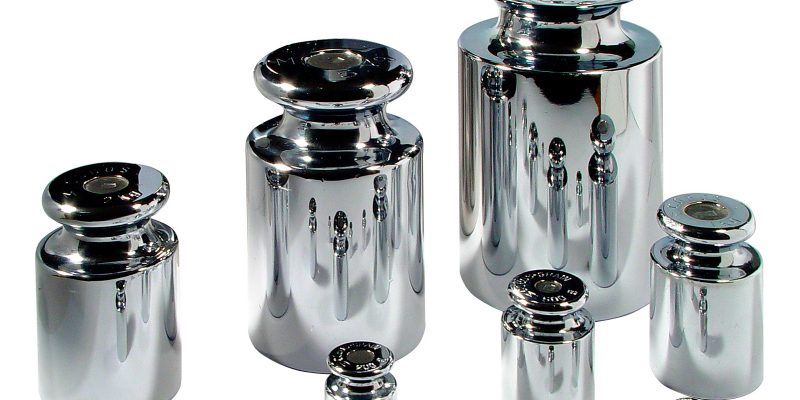

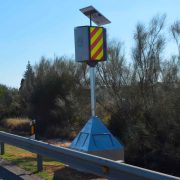
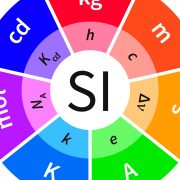
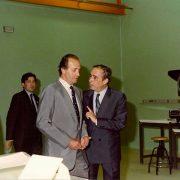
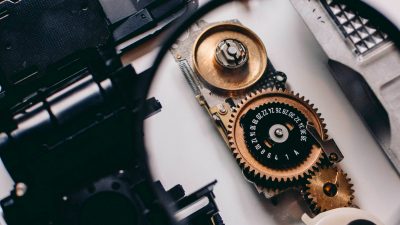
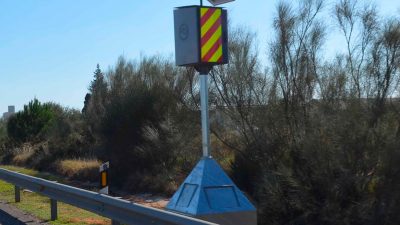
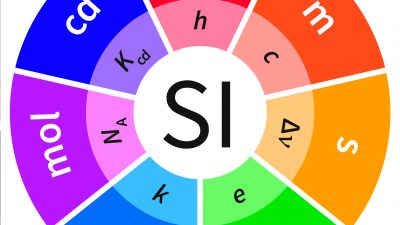
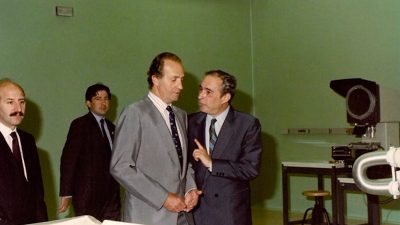
Comentarios